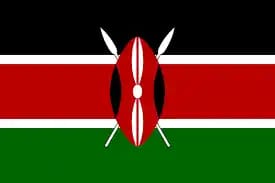Top officials in President William Ruto’s Kenya Kwanza administration are under fire amid the soaring high cost of living taking a toll on Kenyans.
Political, religious and opinion leaders and the general public are demanding the sacking of some cabinet secretaries and economic advisors, accusing them of misadvising Ruto and ridiculing Kenyans.
Among those targeted are Trade CS Moses Kuria, his Energy counterpart Davies Chirchir and chairman of the President’s Council of Economic Advisers David Ndii.
In what could spell doom for the lot and expose a disconnect in government, some of the calls are coming from the President’s own circles.
“The first to be sacked should be David Ndii. He’s an activist for shouting at the problem instead of finding lasting solutions to the problem. He should be fired,” Mbeere North MP Goeffrey Ruku said.
The vocal lawmaker was elected on the UDA ticket.
Kuria and Ndii have been on the spot over their utterances and social media posts that appear to be mocking poor Kenyans who have been hit hard by the cost of living.
On Sunday, Deputy President Rigathi Gachagua who jetted back to the country after a trip to Colombia, took on the state officials for their ‘insensitivity, arrogance and talking down on Kenyans.’
“You do not address your employer with arrogance. Do so with humility and decorum. Kenyans, like the rest of the world, are going through difficult economic times and leaders should address them with sensitivity and empathy,” he said.
“Responsible leaders should be sensitive and inspire hope in the people for a better tomorrow,” he said.
It was not immediately clear if a Cabinet reshuffle was imminent.
Senate Majority Whip Bani Khalwale, who would ordinarily defend the government and the President’s troops publicly asked Ruto to sack the three.
“President Ruto, I want to tell you today from Kakamega. The people you have given jobs have put you in a tight corner,” the Kakamega Senator said.
“Somebody called CS for Trade, CS Energy and you economic advisers must tell us, Kenyans what they mean with government-to-government when things are still worse. You sack these people,” he added.
In March this year, the government signed a deal with the Gulf nations for the supply of petroleum products with a six-month credit period – as opposed to settlement on delivery.
This was meant to curb the demand for dollars.
However, the shilling has continued to weaken against the greenback to unprecedented levels in Kenya’s history.
The sack call comes in the wake of a sharp increase in the price of fuel and plans by the National Treasury to increase and introduce a raft of new taxes.
For the first time, fuel prices surpassed the Sh200 mark in the latest review by the Energy and Petroleum Regulatory Authority.
Last week, the Treasury, announced plans to increase the Value Added Tax (VAT) to 18 from the current 16, among other proposals in what has been criticised as over-taxation.
During campaigns, Ruto scathingly criticised the government for what he termed an insensitive increase in taxes and fuel prices.
Rubbishing the Ukraine-Russia war that the government had cited for the increase in prices, Ruto promised radical measures to save hustlers who were hard hit.
“These fuel prices are increasing day and night, I want to tell you that these people do not understand the damage they are doing to the people of Kenya,” Ruto had said while campaigning in Manga last year.
Amid the crisis, Kuria and Chirchir warned Kenyans to brace themselves for tough times ahead as the fuel prices are not just about to come down.
“I repeat. Petrol will be Sh260 by February. El Nino is coming in three weeks which will last till March. These are global and climate change driven,” Kuria said.
“Responsible leaders ought to tell the truth to prepare the people. You can throw at me all you want.”
Appearing in Parliament last Friday, Chirchir also warned that fuel prices would go up owing to a global increase in prices and the removal of fuel subsidies by the government following a deal by the IMF.
“We are likely to even be going to harder times because these are Platt prices from OPEC, and there’s nothing much we can do about them,” he said.
Ndii, on the other hand, posted tweets that appear to suggest that the President and the government were not keen to actualise their promises to Kenyans.
“I don’t believe politicians, and I don’t trust government. If you do either you are a sucker,” he said.
“You can blame greedy lying politicians (and you’d be right), shake fists at the President, berate the IMF, shoot the messengers, fantasize about all manner of miracle cures and when you are done, the facts will be staring at you, unfazed.”
Senior Counsel Ahmednassir Abdullahi accused the government officers of ridiculing and laughing at poor Kenyans.
“I just don’t get this heartless gloating! Where is empathy for the poor…the downtrodden?” he posed.
Political commentator Mutahi Ngunyi criticised Ruto’s economic moves, saying they are bad for politics as they injure the common man.
“Your economy is bad for politics. How does Epra increase kerosene prices by 33 per cent? And diesel by 20 per cent? The poor use kerosene to cook and matatus use diesel to move,” he said.
“The poor are hurting and all headlines this week are about more taxes. Do not lose the plot.”
Nyeri Archbishop Antony Muheria said the high cost of fuel and taxes “will strangle’ and push Kenyans further into poverty.
“The fuel prices have not increased this much in the last three months. We should not burden the poor Kenyans from all quarters, which include heavy taxation and hiking fuel prices, especially during this time of economic crisis,” he said.
But Transport CS Kipchumba Murkomen said the high fuel prices are a result of global hikes that the country does not have control over, adding that the G-to-G deal helped stabilise prices.












